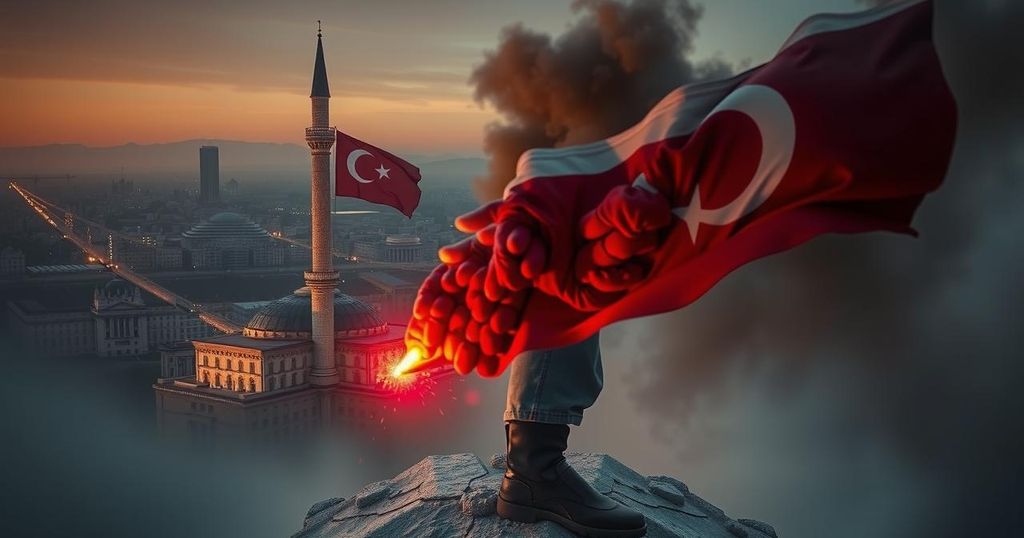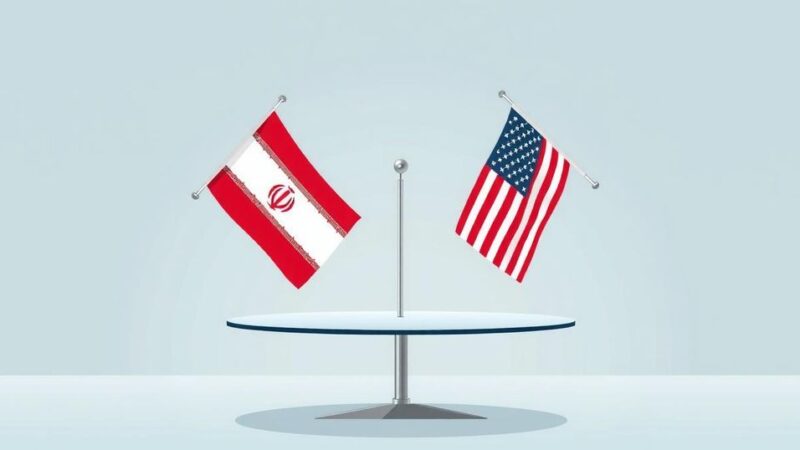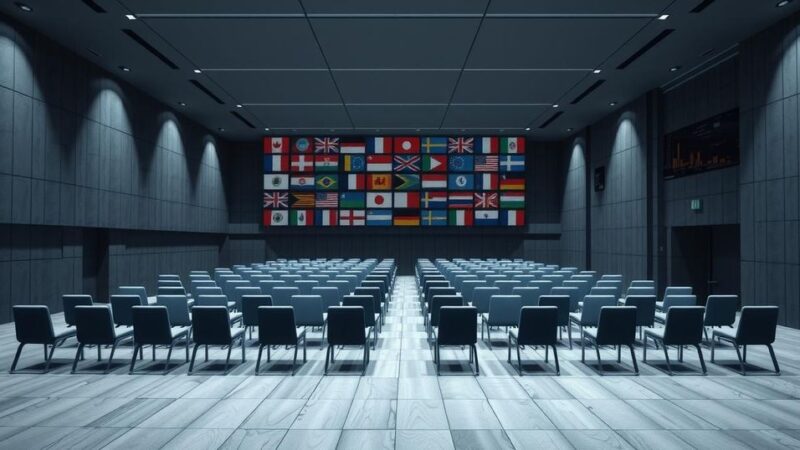The fall of Damascus has diminished Russia’s and Iran’s influence in the Syrian conflict, while elevating Turkey’s role as a potential leader in post-Assad governance. Recent diplomatic efforts were rendered ineffective as Assad’s regime crumbled, prompting reevaluation of strategies by external powers and highlighting Turkey’s responsibility in forming a consensus government.
Recent events in Syria have rendered the diplomatic efforts of Russia and Iran ineffective, particularly in light of the fall of Damascus. The anticipated control that these nations sought to maintain over Syria is now overshadowed by Turkey, which may emerge as a significant player in reshaping Syria’s future. Despite collective appeals for military cessation and territorial integrity at a recent forum, the situation escalated rapidly, leading to an unexpected power shift following President Assad’s collapse.
Russian Foreign Minister Sergei Lavrov found himself defensive during a public discussion on Syria, struggling to justify his country’s involvement over the past decade. When pressed about Syria’s future, he attempted to redirect the conversation to Ukraine; however, his remarks on jihadist groups taking control in Syria and the necessity of maintaining Assad’s regime echoed a narrative increasingly challenged by reality.
Meanwhile, Iran’s foreign minister Abbas Araghchi exhibited signs of distress as the prospects for Assad’s survival dwindled. Amidst discussions, the Iranian leadership recognized the deteriorating situation, acknowledging that their influence in Syria was waning. Iran’s long-term strategy, which centered on establishing a foothold into Lebanon via Syria, faces significant reevaluation due to Assad’s decline.
Conversely, the Turkish foreign minister, Hakan Fidan, is positioned to capitalize on this shift. With resources in the form of the Syrian National Army and connections to various militia factions, Turkey possesses the potential to support the formation of a consensus government in Syria. However, this necessitates responsibility and a careful approach to post-conflict reconstruction amidst a backdrop of renewed hopes for Syrian autonomy.
It is crucial to consider how these rapid developments affect the broader geopolitical landscape in the region, as Turkey rises in prominence while Russia and Iran seek to reassess their diminishing roles. The future of Syria still hangs in the balance, contingent on the external and internal forces at play.
The recent diplomatic engagements took place during a significant dialogue forum in Doha, where Russia, Iran, Turkey, and several Arab states convened to discuss the ongoing conflict in Syria. Their joint aim was to promote an end to military hostilities while advocating for the preservation of Syria’s territorial integrity and the initiation of political dialogue involving the Assad regime and opposition forces. These discussions highlight the complex interplay of foreign interests in a country beset by conflict for over a decade.
In summary, the fall of Damascus has shifted the dynamics of the Syrian conflict, sidelining Russia and Iran as Turkey prepares to step into a more influential role. This unexpected turn underscores the unpredictability of international diplomacy in regions fraught with instability. As the possibilities for a new Syrian government arise, the responsibility to guide this transition will fall predominantly on Turkey, presenting both challenges and opportunities for the future governance of Syria.
Original Source: www.theguardian.com






